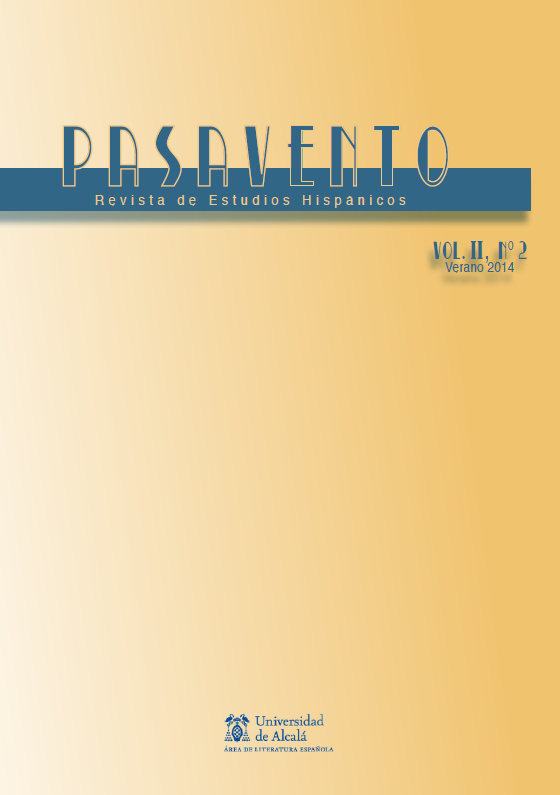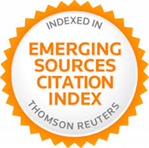Literature, Globalization and the Nomadic Attitude. The Parallel Lives of Roberto Bolaño and Rodrigo Rosa
DOI:
https://doi.org/10.37536/preh.2014.2.2.1004Keywords:
Bolaño, Rey Rosa, Nomads, Globalization, PostcolonialAbstract
This article studies the process of constructing an alternative identity to national identity in two contemporary Latin American writers: the Chilean Roberto Bolaño (1953-2003) and the Guatemalan Rodrigo Rey Rosa (1958). In the last two decades of the twentieth century, they developed their works outside their home countries, integrating nomadic condition as an essential element of their fictions, (auto)biographical narratives and public images. It is true that in both writers the influence of modernism and the avant-garde poetry can be clearly seen, but it also seems clear that new contexts produced by post-modernity and globalization have given their nomadic attitude a distinct and particular shape that may enable us to understand in a different way the situation of an important sector of Latin America contemporary literature and the new position of some writers of this region in our global world.
References
Arroyave, Nancy (2006): “Rey Rosa: Mientras las lenguas estén vivas, puede haber algo que gozar de ellas”. En: Prensalibre.com, 27 de enero. Disponible en <http://www.prensalibre.com/cultura/Rey-Rosa-lenguas-puede-gozar_0_133188038.html>. Última visita: 12.06.2013.
Bhabha, H.K., (1994): The Location of Culture. Nueva York / Londres, Routledge.
Bolaño, Roberto (2000): Tres. Barcelona, El Acantilado.
Bolaño, Roberto (2002): Putas asesinas. Barcelona, Anagrama.
Bolaño, Roberto (2004): Entre Paréntesis. Barcelona, Anagrama.
Castellanos Moya, Horacio (2009): “Sobre el mito Bolaño”. En: Lanacion.com, 19 de septiembre. Disponible en <http://www.lanacion.com.ar/1176451-sobre-el-mitobolano>. Última visita: 12.06.2013.
Deleuze, Gilles, y Guattari, Felix (1980): Capitalisme et schizophrénie 2: Mille plateaux. París, Minuit
De los Ríos (2008): “Mapas y fotografías de Roberto Bolaño”. En: Edmundo Paz Soldán y Gustavo Faveron Patriau (eds.): Bolaño salvaje. Barcelona, Candaya, pp. 237-258.
Fresán, Rodrigo (2009): Historia Argentina [1991]. Barcelona, Anagrama.
Gray, Jeffrey (2007): “Placing the Placeless: A Conversation with Rodrigo Rey Rosa”. En: A Contracorriente. Una revista de historia social y literatura de América Latina, vol. 4, n.º 2, pp. 160-186. Disponible en <http://www.ncsu.edu/project/acontracorriente/winter_07/Gray.pdf>. Última visita: 12.06.2013.
Guerrero, Gustavo (2013): “Boom y cosmopolitismo”. Alicante, Biblioteca Virtual Miguel de Cervantes, pp. 1-10. Disponible en <http://www.cervantesvirtual.com/obra/boomy-cosmopolitismo>. Última visita: 12.06.2013.
Manzi, Joaquín (2002): “El secreto de la vida (no está en los libros)”. En: Celina Manzoni (ed.): Roberto Bolaño, la escritura como tauromaquia. Buenos Aires, Corregidor, pp. 153-165.
Manzoni, Celina (2009): Errancia y escritura en la literatura latinoamericana contemporánea. Alcalá la Real, Alcalá Grupo Editorial.
Meyer, James (1997): “Nomads” En: Parkett, n.º 49, pp. 205-209.
Piglia, Ricardo (2001): Crítica y ficción [1986]. Barcelona, Anagrama.
Rey Rosa, Rodrigo (2002): Piedras encantadas. Barcelona, Seix Barral.
Rey Rosa, Rodrigo (2009): El material humano. Barcelona, Anagrama.
Downloads
Published
How to Cite
Issue
Section
License
Copyright (c) 2014 Pasavento. Revista de Estudios Hispánicos

This work is licensed under a Creative Commons Attribution 4.0 International License.








